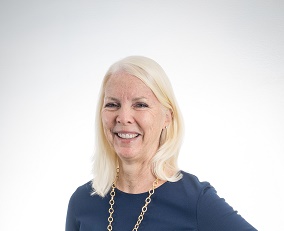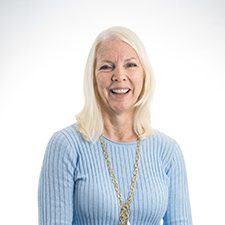Agili In the News
Doctors Should Create Retirement Savings Plan (Video and Transcript)

Michael Joyce, Agili President
Michael Joyce was recently interviewed by Richard Payerchin of Medical Economics. In this video, Michael asserts that doctors should save early and aggressively – and create a retirement savings plan. Please see the video transcript below in italics:
Watch the interview video here.
Doctors Should Save Early and Aggressively
Video Transcript:
Medical Economics: Do you recommend a retirement timeline or a schedule for physicians? For example, if a doctor says, I’d really like to retire at age 65, do you have certain goals or take certain steps maybe 15 years out, 10 years out, five years out, one year out?
Michael Joyce: I think physicians have to start thinking about retirement as soon as they are in a practice and have whether it’s a 40-year plan, that then becomes a 25-year plan, or a 10-year plan, whatever – because they’re going to be at different time horizons, obviously. But their risk tolerance could change over time, their goals and objectives could change over time, so they do want to match up with those goals and objectives. And the tactics that you use will really depend on the timeline.
I do think it is very important to save aggressively, particularly through qualified plans, to achieve retirement goals. And it’s always good to have a well-made plan to show you what you need to do to get on track. And don’t get down if you might be a little off-track for a while. There can be time to catch up. You do want to continue with the plan, though, as much as you can. And the earlier you start, obviously, the better off you are. And it’s never too late to start.
Additional Resources on Retirement Savings for Doctors
Doctors Should Not Over-Complicate Investment Diversification
Presription for Financial Health: Financial Management for Doctors
AAMC’s Physician Education Debt and the Cost to Attend Medical School, 2020 Update
Doctors Should Not Over-Complicate Investment Diversification
Diversify Away Systematic Risk with as few as 25-30 Stocks

Michael Joyce, Agili President
Michael Joyce was recently interviewed by Medical Economics. In this video clip, Michael reminds doctors that they should not over-complicate investment diversification. Please see the video transcript below in italics:
Don’t Over-Complicate Investment Diversification
Video Transcript:
Medical Economics: A few moments ago, you used a term that I didn’t quite catch regarding diversification in a portfolio and you had talked about simply investing in a lot of things. What was that term you used? And is it possible to have a portfolio that is spread too thin — or you think you have a lot of things in it and that means you’re diversified, but maybe you’re not?
Michael Joyce: Yes. There was a legendary mutual fund manager by the name of Peter Lynch who ran the Fidelity Magellan Fund for many years and he used the term I just used – it’s called “deworsification”. That is, you’re invested in so many things that it’s not actually providing a benefit on a risk-adjusted basis. You don’t need to be invested in 800 different stocks. There have been many academic studies that have shown that you can diversify away the systematic risk with a diversified portfolio with as little as 25-30 stocks. If you’re invested in a mutual fund or an exchange trade fund (ETF), it is highly likely to have that kind of diversification in the portfolio. But in terms of diversification, that’s good, but you can carry it too far where it’s really not providing any benefit to your risk-adjusted returns.
Ask Insurance Company for a Re-Rate

Michael Joyce, Agili President
Agili President, Michael Joyce, recently sat down with NBC12 Reporter, Rachel DePompa. In this story, It’s Time to Review Your Insurance, Michael says it’s a good idea to ask your insurance company for a re-rate.
Lower Expenses with a Re-Rate
If you are a customer in good standing, with no recent claims, Michael Joyce suggests that one way to lower expenses is to contact your insurance company to ask for a re-rate. It doesn’t hurt to ask — and you may very well see a reduction in your premiums.
Of course, insurance companies won’t offer this to customers proactively. But, if asked, they may be willing to reduce premiums to keep you as a customer.
Review Insurance Policies Annually
Michael also reminds us that it’s a good idea to review insurance policies annually to make sure they cover what you need.
Calculate Personal Net Worth Regularly

Michael Joyce, Agili President
Agili President, Michael Joyce, recently sat down with NBC12 Reporter, Rachel DePompa. In this story, Don’t Forget to Check in on Your Net Worth, Michael reminds us that it’s a good idea to calculate your net worth once or twice a year.
Calculate Net Worth
Michael tells us that business use net worth as a basis for making financial decisions – and individuals “should do so as well.” To calculate your network subtract your liabilities from your assets.
Value of Knowing Your Net Worth
Knowing your net worth can help motivate you to achieve your financial goals. In addition, if you are planning to apply for loans, lines of credit or other financing in the future, you will need to know your net worth.
Carefully Review Credit Card Statements Each Month

Michael Joyce, Agili President
Agili President, Michael Joyce, recently sat down with NBC12 Reporter, Rachel DePompa, to discuss how important it is to carefully review credit card statements each month. In this story, Make Sure You Look at Your Credit Card Statements Each Month, Michael cautions against simply paying a credit card bill without reviewing it first.
Review Credit Card Charges Carefully
Michael suggests reviewing the your monthly statement line by line. By doing so you might notice credit card fraud. Or you may see that you are still being charged for a subscription you thought you’d successfully cancelled.
Organizing Tax Documents

Michael Joyce, Agili President
Agili President, Michael Joyce, recently sat down with NBC12 Reporter, Rachel DePompa, and talked about organizing tax documents in this segment, Preparing for Tax Season.
Keep Your W-2, 1099s and Other Tax Documents in One Place
To simplify tax preparation and filing, Michael suggests designating one place in your home to keep your various tax documents, such as W-2s and 1099s.
Additional Tax Resources from Agili’s Blog
IRS Issues New Tables for Calculating RMDs
Increase Retirement Account Contributions

Michael Joyce, Agili President
Agili President, Michael Joyce, was interviewed in this segment by NBC12 Reporter, Rachel DePompa, Try to Increase Your 401k Contributions.
Getting a Raise? Be Sure to Increase Retirement Account Contributions
Michael says that it’s a great time to increase retirement account contributions, especially if you will get a raise. “If it’s a 3 percent raise, increase your 401K contributions by 1 percent, so you never miss that extra money in your pay check.” Michael describes this as tax-deferred compounding growth – because you won’t pay taxes until many years in the future.
Increase Retirement Account Contributions Until It Hurts
Michael recommends increasing retirement contributions “until it hurts.” If you think you are at your threshold, add another percent and see if you really are. You can always contribute less if you find you need the money in your paycheck now.
He also reminds listeners to be sure to contribute at least to their corporate match. That’s free money!
Engage Your Work Team

Cindy Joyce, Agili CFO
Agili CFO, Cindy Joyce, wrote her final installment for Business 2 Community in a four-part series that explores how to build a team to thrive in today’s marketplace, Building a Team: Keep Your Great Team Engaged. The first article provides hiring tips, the second piece examines onboarding, and the third installment is about employee retention.
Company Leadership Must Meet the Moment
As Cindy says: A great deal of uncertainty exists around how best to build and maintain teams, especially as employee preferences evolve. Nevertheless, business leaders must adjust to meet the moment. They should take advantage of new opportunities to identify and build exceptional teams that will, in turn, power company growth.
Recommendations for Engaging Your Team at Work
Cindy provides insightful recommendations for company leadership hoping to engage their great team: communicate consistently, recognize good work, focus on employee needs, and have fun! She says, “Workplace studies have found that socializing among team members improves communication by 50 percent and that reducing the feeling of employee isolation can, in fact, increase productivity.”
Retirement Planning for Doctors

Marilee Falco, CFP®, ChFC, Principal, Financial Strategist
Marilee Falco, CFP®, ChFC and Michael Joyce, CFA, CFP® recently authored an article for Lehigh Valley Business about retirement planning for doctors, Perspective: Doctors’ Strategies Need to Evolve During Their Careers. They discuss how the traditional road to financial security for many doctors has changed in recent years. Marilee and Michael provide retirement planning recommendations for four phases of a doctor’s career: medical school, residency, early career, and wealth-building years.

Michael Joyce, CFA, CFP®, Agili President
Building a Team: Employee Retention Tips

Agili COO, Cindy Joyce
Employee retention is the topic Cindy Joyce discusses in a recent article for Business to Community. Retaining employees is critical for a business’s success – not only because it’s expensive to replace employees, but also because losing employees can be bad for company morale, productivity, and performance. And in this tight labor market, employee retention is more imperative than ever.
Science of Retaining Employees
Cindy asserts that there is a science to employee retention. To retain employees, companies must offer competitive compensation packages that are current with market salaries for your location and industry. And the benefits packages must be competitive as well. Another way to retain employees? Engage employees to give feedback on company decisions; ask employees what matters to them. All of this demonstrates commitment to your team.
Art of Retaining Employees
In addition, employers can excel at the art of employee retention by focusing on relationship-building through weekly team emails, team recognition, and company retreats. Of course, an informal way to engage with your team is to walk around and visit with them during the day. Offering surprise gift cards or company swag can also help build a cohesive team.
Check out Cindy’s first article in this series that covers hiring tips and the second piece that explores onboarding.
Financial Advice When Starting Out

Michael Joyce, Agili President
In this interview with NBC12, Michael Joyce shares his financial advice for those just starting out in the workforce.
Tip #1: Contribute Immediately to a 401(k)
Michael reports that he told his older sons to contribute to their companies’ 401(k)s as soon as they began work. He suggests investing 10% of gross pay into a 401(k) plan immediately – so that you never miss that money.
Tip #2: Start an Emergency Fund
Another tip? Michael says it’s important to save 3-6 months of expenses in a low-earning savings account in the event of a financial emergency.
Tip #3: Pay Off Credit Cards Immediately
Lastly, Michael thinks we should all have a credit card (for emergencies), but he recommends paying it off every month.
For more financial advice for young professionals, check out Financial Planning Analyst Grant Wilburn’s recent blog post: Financial Management for Young Adults.
Unexpected Costs When Buying a Home
Best to Know All Costs Before Buying a Home

Michael Joyce, Agili President
In this interview with NBC12, Michael Joyce reminds new homebuyers that it’s important to consider all of the fees that go into buying a home.
Unexpected Costs At Closing
In addition to closing costs, it’s imperative that new homebuyers don’t forget to factor in the following costs to a home’s purchase price:
- Mortgage insurance
- Title insurance
- Homeowner’s insurance
Ongoing Costs After Buying a Home
These days, higher property taxes should be accounted for when home-buying. Michael reminds us, “With property values going up, assessments are going up – which means homebuyers will pay more over time.”
Also, it’s important to remember to add ongoing home maintenance to your budget: “We recommend having a certain percentage of the home value that’s dedicated towards home maintenance every year because things wear out, you’re going to have to upgrade things over time.”
For more from Agili on the topic or real estate, check out Michael’s summer interview with NBC12, Real Estate Market: Renting vs. Buying.
Real Estate Market — Renting vs. Buying
Real Estate Market Today
 In this interview with NBC12, Rachel DePompa asks Michael Joyce about renting vs. buying in this current real estate market where both rent and home prices are increasing.
In this interview with NBC12, Rachel DePompa asks Michael Joyce about renting vs. buying in this current real estate market where both rent and home prices are increasing.
Renting vs. Buying – Depends on Length of Stay
Michael says that the most important factor in determining whether to rent or buy may be how long you plan to stay in an area. If your move will be short-term (under five years), Michael recommends renting in today’s market.
Interested in more of Agili’s thoughts on financial planning and investment management? Check out our blog.
Building a Cohesive Team: New Employee Onboarding
Written by: Cindy Joyce
In her series for Business 2 Community on building a cohesive team, Agili’s Chief Operating Officer, Cindy Joyce, writes about new employee onboarding. In her latest article, Building a Team: Onboarding Tips, she discusses the importance of onboarding because in today’s tight labor market, finding, hiring and keeping new employees can be challenging indeed.
Best Practices New Employee Onboarding
Cindy’s advice for businesses includes best practices for what should happen before a new employee begins, what should happen on their first day, and the continuing onboarding and training that should be implemented over the course of the first six months at a company.
Better New Employee Onboarding Leads to Better Employee Retention
Prioritizing and standardizing onboarding leads to a better employee transition – and, ultimately, higher employee retention rates.
For more from our team of experts at Agili, we invite you to visit our blog where we share advice on financial planning, investment management, and more.
Financial Planning for Doctors
Medical Economics Interviews Jamie Malone about Financial Planning for Doctors
 Medical Economics recently interviewed Jamie Malone about financial planning for doctors. Medical Economics asked if it is better for doctors to pay off medical school debt or to save for retirement. Jamie explained that at Agili it’s not an either/or question; we believe doctors can do both. Jamie provides very specific wealth management strategies for doctors.
Medical Economics recently interviewed Jamie Malone about financial planning for doctors. Medical Economics asked if it is better for doctors to pay off medical school debt or to save for retirement. Jamie explained that at Agili it’s not an either/or question; we believe doctors can do both. Jamie provides very specific wealth management strategies for doctors.
Read Jamie Malone’s interview with Medical Economics here. A video of this interview will be available soon.
Additional Resources: Financial Planning for Doctors
For more of Agili’s insights regarding financial planning for doctors, check out a our page, Financial Planning for Doctors, or Davis Barry’s recent blog post, Prescription for Financial Health: Financial Management for Doctors.
Small Business Advice: Partner with Local Banks

Marilee Falco, Principal and Financial Strategist
In a recent article for Lehigh Valley Business, Marilee Falco and Cindy Joyce shared some small business advice that we often give to our clients who own their own companies. That is, it is often beneficial to use local banks for a small business’s banking needs.
How Local Banks Helped Small Businesses During COVID

Cindy Joyce, Chief Operating Officer
Over this past year, during the COVID crisis, many bank lobbies have been shuttered, making neighborhood banking seem like a thing of the past. But for small business owners, this crisis has brought home just how important it can be to have a strong partnership with a local bank.
Thinking back to the beginning of the pandemic when communities were in lockdown, many small businesses needed to apply for Paycheck Protection Program (PPP) loans to cover payroll. Because of the complexity of the PPP loan applications, most banks worked with their existing business clients first. Early on, it was often those businesses with established relationships with local banks that received their emergency funds first.
Local Banks Have Same Security and Compliance Requirements as Larger Banks
Even in “normal times,” having a long-term working relationship with a local bank can be beneficial to a small business. Local banks have the same security and compliance requirements as larger mega-banks, but one particular benefit of smaller local or regional banks is that they have more latitude than larger banks when it comes to waiving fees or granting a more desirable interest rate.
If a small business owner needs something outside of the ordinary, she may not have to jump through as many hoops with a local bank. If, for example, the company needs something like a medallion signature, banks may only be willing to work with established clients they know well.
The Personal Touch of a Local Bank for a Small Business
With a local bank, you are likely to receive more personalized service than you would receive with a national bank. We have noticed that there is often less turnover and employee rotation between the branches of local banks as opposed to national ones. If a business owner has a banking question, when she calls her local bank, she will speak to a person in her area and not a call center as may happen with national banks. And if there is unusual activity in a business account, a local banker will often pick up the phone and call a business owner rather than wait for the automated system to kick in.
Over time, small business owners may realize another unintended and unexpected benefit of working with a local bank. Your local banker may become a good source for business development. Because they build business for their bank through networking, and because they come to know your business well, they may very well become a good referral source for your company.
A final benefit of working with a local bank? By doing so, you are supporting your local community’s economy – and not that of a national bank with headquarters elsewhere.
Yes, there are certain advantages to working with larger, national banks. Among them, bigger banks often have more comprehensive online services, for example, which can simplify and expedite transactions for businesses.
Finding a Local Bank for Your Small Business
If your small business is in the market for a local bank, the Independent Community Bank Association (ICBA) can help you compare options in your area. In addition, the FDIC’s BankFind tool provides information about all FDIC-insured banks and their locations, including current and historical data.
Of course, every business wants their banker to collaborate well with other professional advisors, such as attorneys, accountants, and strategists. It may be advisable to contact other small business owners to inquire about their experience working with local banks.
Whether you choose to bank with a local, regional or national bank, it’s always a good idea to take the time to develop and maintain a close relationship with your business’s banker.
If you would like more small business advice, we at Agili would be happy to help.
Financial Planning: Funeral Expenses
 Michael Joyce sat down with Rachel DePompa of NBC12 to discuss funeral expenses and funeral planning. It may be a morbid subject, but for the sake of your family, it’s important to think about planning for funeral costs. It’s thoughtful to provide your loved ones a road map for when you are not around.
Michael Joyce sat down with Rachel DePompa of NBC12 to discuss funeral expenses and funeral planning. It may be a morbid subject, but for the sake of your family, it’s important to think about planning for funeral costs. It’s thoughtful to provide your loved ones a road map for when you are not around.
Family Members Are Vulnerable After a Death
Soon after a death, people are vulnerable and can easily be talked into expensive options. And funeral and burial costs are typically costly.
Write a Letter of Instruction about Funeral Plans and Funeral Expenses
Michael says one of the things he often tells clients to do is to write up a letter of instruction to be kept with some of your estate documents: “Because you can put anything you want in these letters of instruction. And this could be one of the pieces of it: how you would want things done.”
Begin Financial Planning for Funeral Expenses Early
Michael says that you would be well advised to begin funeral planning early, before becoming terminally ill or elderly. Taking steps like this could make it easier for the family left behind, even if you have decades or a half a century left to live.
Is It Possible to Pay Off Student Debt and Save for Retirement Simultaneously?
 Save for Retirement While Paying Off Student Loans
Save for Retirement While Paying Off Student Loans
In a conversation with Rachel DePompa of NBC12, Michael Joyce reminds us that it’s important to save for retirement while paying off student loans. No matter how hard it is, it’s important to not ignore one at the expense of the other. You have to look at how much you are going to pay on the student loan over the minimum amount versus how much you are going to put into a retirement account.
Retirement Savings Compounds and Taxes Are Postponed
“In a retirement account what’s always important to remember is not only are the funds in there not taxed until well into the future, but that money grows. It compounds without a tax drag,” said Joyce.
Save Up to Your Company’s 401(k) Match
Michael adds you shouldn’t leave money on the table. For example, if your company offers a 401(k) match, try your best to save up to that match amount. But even if you are setting aside just one or two percent of your take-home pay in a retirement account, do it. Every little bit helps.
A financial planner may also be able to help you make a plan to save for retirement while paying off student loans. Our team of experts at Agili would be happy to help.
Don’t Believe Investment Hype
 Don’t believe investment hype! In a conversation with NBC12, Michael Joyce says that young investors risk losing a lot of money if they don’t understand the fundamentals behind an investment. The GameStop phenomenon is one such example.
Don’t believe investment hype! In a conversation with NBC12, Michael Joyce says that young investors risk losing a lot of money if they don’t understand the fundamentals behind an investment. The GameStop phenomenon is one such example.
The Stock Market is Not a Game
If you are new to investing and watching the stock market or your kids are, Michael says there’s one big thing to remember — the stock market is not a game.
Understanding Investment Fundamentals
Michael says inexperienced investors can lose a lot of money getting caught up in the hype surrounding a new investment trend. He says there’s a difference between investing and speculation or gambling. Investing is not a get-rich-quick scheme.
Michael says it’s critical think about why you want to invest in a business. What are the fundamentals for investing in this company? You don’t want to invest in something because of what you read on a Reddit board.
Be Measured and Careful When Investing
Michael also reminds investors that they shouldn’t buy something just because it moved up or sell something just because it’s gone down and you think it’s going to go lower. He says you want to be measured and careful.
Hire an Investment Advisor
He also says a financial advisor or an expert can teach you the ins and outs of investing. You don’t want to just wing it.
Young Wealth Management: Four Tips from a Financial Advisor

Cindy Joyce, Agili’s Chief Operating Officer
In this article for Business 2 Community, Cindy Joyce shares her insights on personal finances for young adults — how they can move on from the economic fallout of the pandemic and plan for a secure financial future.
This past year demonstrated the importance of planning ahead and doing whatever you can to be financially prudent. Having savings to fall back on can make all the difference during tough times. The good news for young adults is that they’ve got time on their side.
Cindy shared these four financial management lessons:
Make Sure You Are Financially Literate
A 2019 USA Today story reported that only 57 percent of adults in the U.S. are considered financially literate. Other studies have shown that only about half of college-educated young adults between 25-34 years of age correctly answered questions to test basic financial literacy. These findings highlight the lack of financial planning education taught during school years.
Young professionals should educate themselves to ensure at least a surface-level understanding of common financial issues, such as budgeting, interest rates, loans, taxes, financial priorities, and debt. Financial advisors and others can help, but you need to have that foundational knowledge.
Start Saving Early and Don’t Stop
Compound interest is incredibly powerful and young professionals are in the best position to use it to attain their financial goals.
We recommend saving a little bit from your very first paycheck and continuing to add to that account. Add a little more every time you get a bonus or raise and keep that savings or retirement account locked. Don’t touch it and watch your money grow.
How do you know if you’re saving the right amount? A good rule of thumb is to save until it hurts just a little (i.e., skip eating out one night per week). The earlier you start saving, the more power compound interest will have and the less you’ll need to save later in life.
As you consider how much to save, think about your goals and risk tolerance. A generic savings account at a bank is a start but won’t do the trick for high returns. Research low-cost accounts with higher yields, such as money market accounts.
A final note on savings. If you get a surprise cash influx – stimulus check, tax refund, bonus, etc. – treat yourself with a small portion and put the vast majority into savings. You’ll want that on hand in case there’s ever a financial emergency. A good rule of thumb is to have two savings accounts. One account should be an emergency fund with six-to-eight months’ worth of regular expenses and the second account should be used to save for your future retirement or bigger expenses, such as your first house.
Begin Retirement Planning Now
Saving is important so you have a cushion as you age and so you’re set for retirement. For young professionals, retirement is decades away, but if you want a lifestyle you can truly enjoy when you retire, you need to start working at it now.
Here’s an easy strategy that young professionals can implement early in their career (although it’s really applicable to anyone at any stage): Max out your 401(k) savings option through your employer. This money will be automatically deducted from your paycheck and placed in your 401(k). It’s like you never had the money in your pocket to begin with, so you won’t miss it (but you will appreciate it later in life). This move helps you maximize your company match as well, resulting in even more money directed to your retirement account. Similar to other types of saving, the earlier you start the less work you have to do in the end.
Remember, if you start saving when your career is in its early stages, you can even become a 401(k) millionaire. Cindy shared additional tips on 401(k) millionaire strategies last year as well.
Look Ahead: More Financial Planning for Your Future
Looking ahead is more than just planning for retirement. Retirement planning is certainly crucial for all young professionals, but you shouldn’t stop there. Some other common financial planning considerations to keep in mind include:
- Life Insurance: It’s cheaper and easier to get when you’re younger.
- Long Term Disability Insurance: Same as life insurance, easier to qualify for and less expensive the younger you are. Fun fact: More people need disability insurance than need life insurance.
- Tax Planning: Review withholdings annually so you don’t overpay. Getting a refund check is essentially giving the U.S. government an interest-free loan.
- Employee Benefits: Take advantage of programs, insurance policies, and incentives your employer offers because it’s usually cheaper (or free) when packaged through your company.
The right preparation and planning can put young professionals on a financial path that will reward them for decades to come. It just takes getting started.
For more information, check out Financial Planning Analyst Grant Wilburn‘s blog post, Financial Management for Young Adults.
For some back-to-basics financial planning education, please see our blog post, Three Components of Personal Financial Planning.
1806 Summit Avenue
Suite 100
Richmond, VA 23230
74 West Broad Street
Suite 320
Bethlehem, PA 18018
